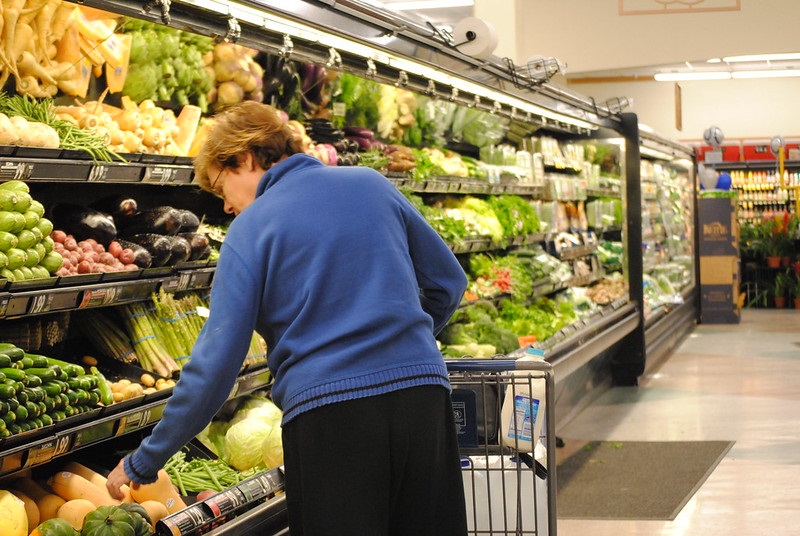
Credit: Anthony Albright via Flickr Creative Commons
The Farm Bill is a huge piece—or maybe quilt—of federal legislation that affects everything from food security to agribusiness to local farms to climate. This legislation includes funding for the Supplemental Nutrition Assistance Program (SNAP), the country’s most important anti-hunger program.
In ordinary times, the Farm Bill is reauthorized every five years. As you may have noticed, these aren’t ordinary times. The last Farm Bill was passed in 2018 and was due for reauthorization in 2023, but partisan wrangling and the threats of another government shutdown slowed down the process.
Now, the House and Senate are developing starkly different proposals. These differences show up most clearly on issues of food security and SNAP, which increases food security for over 40 million people in the U.S.
The House version, as released by House Agriculture Committee Chair Glenn “GT” Thompson, would cut SNAP benefits by an estimated $30 billion over the next decade. It would do that by freezing the cost of the Thrifty Food Plan, which is used to determine SNAP benefit levels, even amid inflation and changing dietary guidance.
According to the Center on Budget and Policy Priorities, $18 billion of the cut would affect households with children, including $9 billion in cuts from those with kids under age 5. Working families would experience $11 billion in cuts while older adults and people with disabilities would lose $5 billion and $6 billion, respectively. For a detailed breakdown, including state information, click here.
By contrast, the Senate version, as proposed by Senate Agriculture Committee Chair Debbie Stabenow, would not only avoid cuts but also strengthen and expand SNAP assistance. It would do that by ending the lifetime ban on food assistance for people with felony drug convictions as well as reducing barriers to participation for older adults, military families, and some college students. It would also reduce inequities in food assistance for Puerto Rico.
According to the United Food and Commercial Workers Internation Union, “This version of the Farm Bill increases vital economic aid, allotting millions of dollars to America’s essential food and farm workers, and creates badly needed labor standards for Supplemental Nutrition Assistance Program (SNAP) delivery drivers, all while ensuring that federal money goes towards good jobs.”
Any version of the Farm Bill that will eventually pass will need bipartisan and bicameral support. But the Senate version should provide the baseline for this vital legislation when it comes to food security. As negotiations continue, Congress needs to hear from us today.
Join us in urging elected officials to pass a Farm Bill that helps people meet their nutritional needs and thrive.
